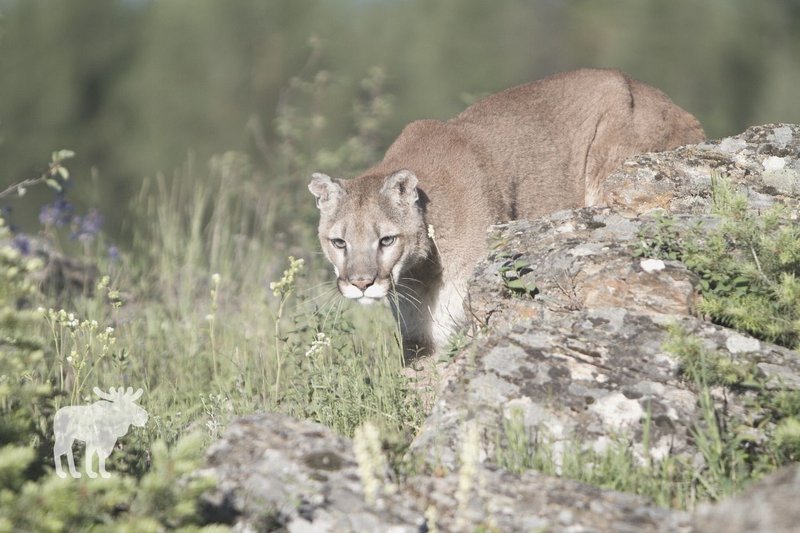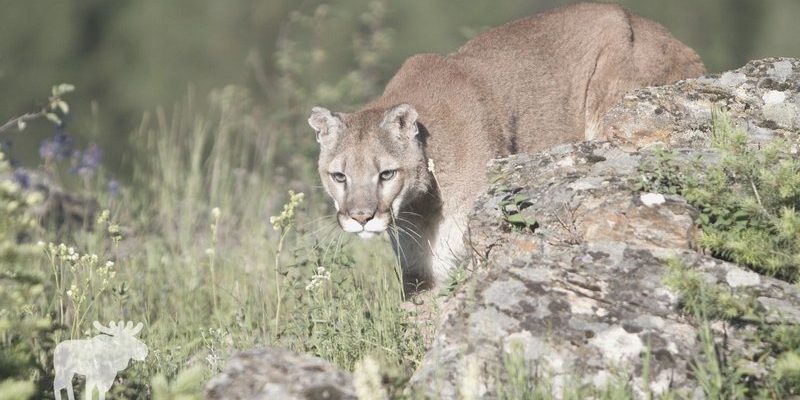
In this article, we’ll explore how cougars have adapted to their surroundings, much like a well-designed remote control syncing smoothly with a TV. Each feature of a cougar plays a role in its survival, whether hunting for food or staying warm during a cold night. Maybe you’re curious about their diet, shelter, or behavior? Let’s dive into the fascinating world of cougars and see how they navigate through life’s ups and downs.
Physical Adaptations for Survival
Cougars are built like the ultimate survival machines. Their strong muscles and flexible bodies allow them to leap up to 40 feet in a single bound—impressive, right? This agility is especially helpful when they need to chase down prey or escape from potential threats. Cougars have powerful legs that give them not only speed but also great climbing skills. They can easily scale steep cliffs and trees, which helps them find food and stay safe from larger predators.
Another cool feature of cougars is their sharp retractable claws. They can extend these claws when they land a catch, allowing them to grip and hold onto slippery prey like deer. Their keen sense of sight, especially in low light, makes them exceptional nocturnal hunters. It’s like a built-in night vision, giving them the advantage when most prey animals are vulnerable. Cougars truly are nature’s athletes!
Behavioral Adaptations in Harsh Conditions
Now, it’s not just about physical traits; cougars have a whole set of smart behaviors that help them survive. For example, they’re solitary animals, which means they don’t need to share resources with others. This lifestyle can be beneficial when food is scarce, as they can range over large areas to find meals without competition.
Cougars are also very adaptable in their hunting strategies. They can stalk prey quietly and pounce with great force. Let’s say they spot a deer; the cougar will often use the terrain to its advantage, hiding behind rocks or bushes to get as close as possible before launching its attack. It’s all about being stealthy and strategic, much like a remote control navigating its way through a complex menu on a TV.
Hunting Techniques
When it comes to hunting, cougars have some tricks up their sleeves. They primarily hunt at dawn or dusk, which is when many of their prey are most active. Cougars will often choose to hunt alone, relying on their strength and stealth to take down animals like deer, elk, and even smaller creatures like rabbits.
Their preferred technique is to ambush. They’ll stalk their prey silently, using the cover of trees and rocks to get as close as possible. When the moment is right, they’ll spring into action. This high-energy burst is crucial because it often determines the success of their hunt, and if successful, it provides them with food for several days. It’s a calculated risk, much like syncing a new remote to a device—you have to get it just right for it to work.
Finding Shelter and Staying Warm
Living in harsh environments means that cougars also need to find places to stay warm and safe. They often seek out caves, rock overhangs, or dense thickets to rest or hide from bad weather. This is similar to how we might retreat to a cozy corner of our homes during a snowstorm. Choosing the right shelter is crucial for staying out of the elements, especially when winter rolls in.
Interestingly, cougars are also known to be quite clean and meticulous. They’ll often choose areas that are dry and high up to prevent flooding or cold drafts. This intelligent choice helps them maintain their body temperature and stay healthy, much like making sure a remote has fresh batteries to function properly.
Water Sources and Hydration
Just like us, cougars need water to survive. They usually find water sources like rivers, streams, or ponds, and they can go several days without drinking if they need to. During dry spells, cougars are known to get creative—sometimes even eating snow for hydration. Can you imagine that? It’s their version of keeping cool under pressure.
Additionally, cougars have adapted to their environments by learning which water sources are reliable. They’ll often frequent these areas during their hunts, ensuring they have access to both food and hydration without wasting energy running around searching.
Dealing with Competition and Threats
Life isn’t all smooth sailing for cougars; they face competition and threats from other animals. Larger predators, like wolves or bears, can be a danger to them, especially if food is scarce. Cougars are super aware of their surroundings and will often move to avoid confrontation. It’s kind of like knowing when to change the channel during a boring TV show—you want to avoid wasting time and energy in a situation that won’t benefit you.
When they encounter larger predators or humans, cougars will often retreat to avoid conflicts. They’re territorial, but they also understand when it’s better to prioritize survival over showcasing strength. This clever decision-making ensures that they can continue thriving in their harsh habitats.
The Impact of Climate Change on Cougars
As our environment changes, cougars are facing new challenges. Climate change leads to habitat loss and alterations in prey availability, making survival tougher. As temperatures rise and weather patterns shift, cougars may need to adapt their hunting habits or even explore new territories.
Imagine a remote control that suddenly loses its connection to your TV because of interference. Cougars face similar disruptions in their environments. It’s crucial for wildlife conservation efforts to take these changes into account, helping to ensure that cougars have a chance to thrive even in the face of adversity.
Watching a cougar navigate its harsh environment is nothing short of inspiring. From their physical prowess to their smart behaviors, these magnificent cats have evolved to survive—just like finding the right remote control to work with your devices. By understanding the remarkable adaptations of cougars, we gain insight into the complex web of life that exists in the wild.
So, the next time you think about cougars or see one in a documentary, remember how they tackle their challenges head-on. They remind us of the strength of nature and the importance of adapting to thrive, even in the roughest of conditions. Whether it’s a mountain range, a desert, or changing climates, cougars continue to be incredible survivors.

